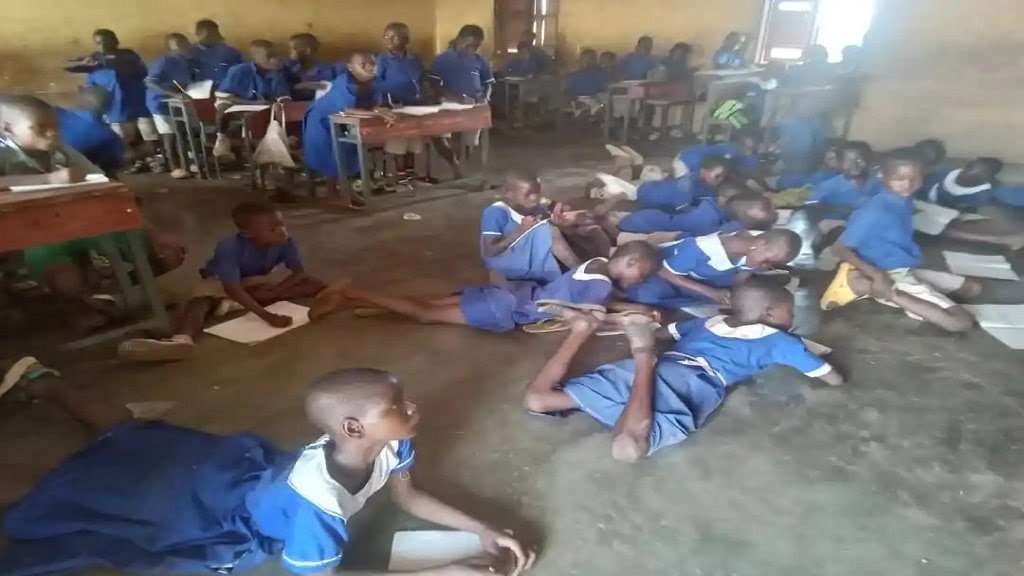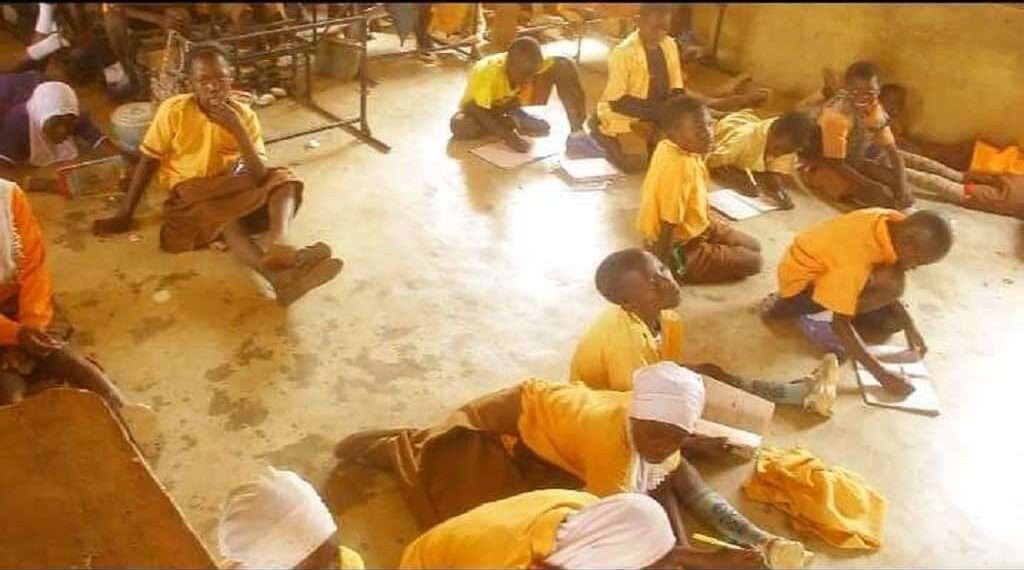In a stark revelation of the challenges plaguing Ghana’s education sector, it has come to light that over one million desks are lacking in the country’s basic education subsector.
Despite successive governments prioritizing basic education, Ghana finds itself grappling with a profound infrastructure deficit, particularly in the provision of essential furniture like desks.
There are also more than 5,000 basic schools resorting to makeshift arrangements under trees, sheds, and dilapidated structures, leaving the very foundation of quality education in the country under threat.
According to recent findings from Africa Education Watch, the desk shortage crisis disproportionately affects regions in the northern part of Ghana, with all six regions exhibiting ratios above the national average.
The implications are profound, as evidence involves staggering statistics including 50% of kindergarten pupils, 40% of primary pupils, and 30% of junior high school pupils who lack proper seating and writing places.
This translates to a shocking 40% of basic school pupils nationwide, facing the challenge of studying in environments not conducive to learning.
“Recent data available through the Ministry of Education’s (MoE) Education Management Information System (EMIS) suggests that as of 2021, 50 per cent (596,949) KG pupils, 40 per cent (1,308,479) primary pupils and 30 per cent (425,465) JHS pupils did not have seating and writing places, bringing the total to 2,330,893, representing 40 per cent of basic school pupils”.
Africa Education Watch, 2024
The impact of the desk deficit extends far beyond mere discomfort, as according to the report, students are forced into improper sitting postures, leading to postural overload and hindering their performance in crucial classroom activities such as writing and reading.
Such physical discomfort not only impedes learning but also jeopardizes the overall academic performance of these students.
In places like the Gushegu Municipality in the Northern Region, the report revealed that over sixty per cent of schools face desk deficits with several primary school children in the Municipality crammed onto dual desks, with many resorting to sitting on the floor or lying on their bellies to take lessons.
At the junior high level, the report showed that the situation worsens, with teachers lamenting the frustration and academic impediments caused by the lack of proper furniture.

Furthermore, in places like the Kintampo North Municipality in the Bono East region, the Africa Education Watch’s report showed that the desk crisis in the public basic schools is at a greater height, with some students compelled to buy their own tables and chairs or resort to standing or sitting on windows to write.
It is without doubt that this shortage of desks in the public basic schools across the country not only obstructs access to education but also undermines the quality of learning, thereby hindering the country’s progress towards achieving the Sustainable Development Goal (SDG) on quality education.
Desk Deficit Perpetuates Inequalities
Moreover, the desk deficit not only undermines Ghana’s progress towards the Sustainable Development Goal on quality education (SDG 4), which aims to ensure inclusive and equitable quality education for all but also perpetuates inequalities and impedes socio-economic development.
While commendable efforts from the government and some non-governmental organizations like the Star-Ghana Foundation have been made to address the deficit, they fall short of meeting the overwhelming need.
There is therefore the need for an urgent government intervention to address this pressing issue.
The timely disbursement and release of allocated funds, such as the GETFund’s GHS 800 million proceeds earmarked for basic education in the 2024 Budget which has been approved by Parliament is crucial step that must be taken by the government to alleviate the desk deficit syndrome in public schools.
As the custodians of Ghana’s educational aspirations, the government must heed the call to action. Failure to address the desk deficit undermines the fundamental right to quality education for every Ghanaian child and jeopardizes the nation’s pursuit of Sustainable Development Goal four on quality education.
It’s time for decisive and concerted efforts to ensure that every student has access to a conducive learning environment, thereby paving the way for a brighter future for all.
READ ALSO: EduWatch Bemoans The Declining Rate Of Education Financing In Ghana




















